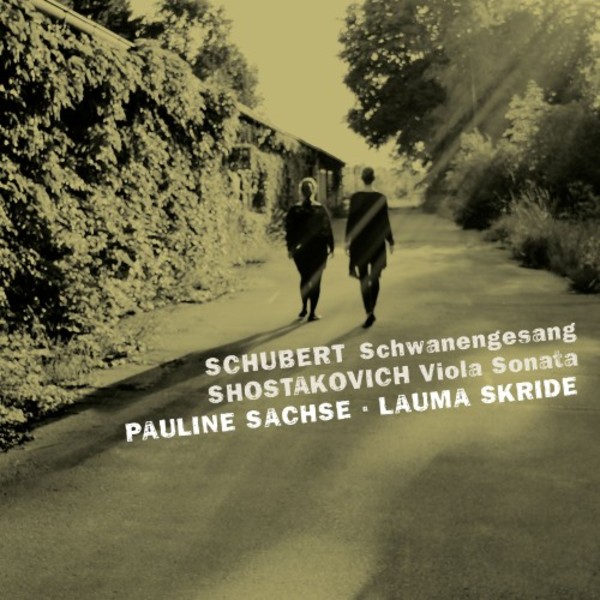
Schubert - Schwanengesang; Shostakovich - Viola Sonata
£13.25
In stock - available for despatch within 1 working day
Despatch Information
This despatch estimate is based on information from both our own stock and the UK supplier's stock.
If ordering multiple items, we will aim to send everything together so the longest despatch estimate will apply to the complete order.
If you would rather receive certain items more quickly, please place them on a separate order.
If any unexpected delays occur, we will keep you informed of progress via email and not allow other items on the order to be held up.
If you would prefer to receive everything together regardless of any delay, please let us know via email.
Pre-orders will be despatched as close as possible to the release date.
Label: C-AVI
Cat No: AVI8553371
Format: CD
Number of Discs: 1
Genre: Chamber
Release Date: 31st March 2017
Contents
Works
Die Taubenpost, D965a (arr. for viola and piano)Schwanengesang, D957 (arr. for viola and piano)
Viola Sonata, op.147
Artists
Pauline Sachse (viola)Lauma Skride (piano)
Works
Die Taubenpost, D965a (arr. for viola and piano)Schwanengesang, D957 (arr. for viola and piano)
Viola Sonata, op.147
Artists
Pauline Sachse (viola)Lauma Skride (piano)
About
‘Shostakovich wrote his Sonata for viola and piano within an extremely brief period of time. On 25 June 1975, Fyodor Druzhinin – the violist of the Beethoven Quartet, who were the composer’s friends – received a telephone call from the Shostakovich, informing him that he was working on a viola sonata and wanted to clear up initial technical matters with him. Shostakovich’s health had always been quite poor; by this time, after having suffered two heart attacks and a muscle disease, he was additionally weakened by years of fighting lung cancer.
‘Shostakovich finished his score on 5 July and passed away on 9 August. Fyodor Druzhinin and Mikhail Muntyan premiered the work only a few weeks later, on 25 September. The composer therefore never had the opportunity to hear what his work sounded like.
‘Shostakovich’s political outlook and his ambiguous attitude vis-à-vis the political system of the USSR have been much discussed; his music, however, remains clear and honest. He exposed the grotesque masks and masquerades of human society. In his compositions he chronicled his day and age, a period characterized by hypocrisy, fear, treason, unimaginable human vileness and an excessive cultivation of image on the part of those in power. His music is thus now as urgently appropriate as it ever was.’ – from booklet notes by Pauline Sachse
Error on this page? Let us know here
Need more information on this product? Click here